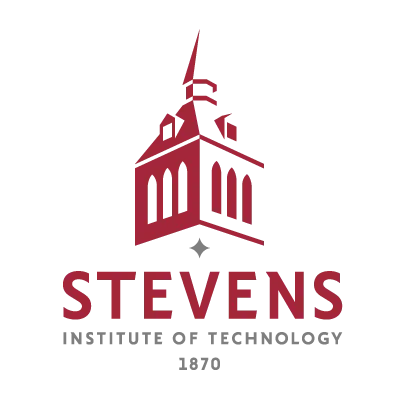Online Computer Science Degree: Stevens Welcomes Varying Levels of Experience

Kelly was encouraged to apply because he knew Stevens welcomed graduate students with bachelor’s degrees outside the computer science disciplines. The school offers two foundational courses - one in Java programming, the other in data structures - to bring non-computer science majors up to speed before they begin graduate work. According to Kelly, these courses do “a really good job… of catching you up quickly.”
Despite a full-time job, a course load of two classes per semester and family obligations, Kelly was generous enough with his time to share his journey to Stevens and his experiences in the online program.
WHAT LED YOU TO PURSUE AN ONLINE MASTER’S DEGREE IN COMPUTER SCIENCE?
I have a bachelor’s in aeronautical engineering, but I’ve always known that I wanted to do computer science. I didn’t want to build the planes themselves; I wanted to program the planes’ systems. When I realized I needed more background in computer science, I started looking for internships and outside experience. I also started to learn on my own, taking whatever classes I could.
“I’ve been pleasantly surprised by how close I’ve gotten to my classmates. I didn’t realize that I would actually get to know these people beyond the classroom, but I have, and it’s been great.”
I had an internship with Brookhaven National Lab that offered a graduate program benefit, so I started thinking about getting a master’s, but I was on the fence. I worried that I wouldn’t be able to keep up in a computer science master’s program because I wasn’t an undergraduate comp sci major. They encouraged me to go for it, to write my statement of purpose to get that practice and start looking into programs.
I found out about Stevens at the height of the pandemic, so an online degree was an appealing option. The program description and the course descriptions interested me, but what particularly caught my eye was that the school welcomes students with varying levels of experience. I spoke with an admissions counselor who explained that Stevens offers two tracks, one of which is for people newer to formal education in computer science. So, I thought, “I’m going to do this.”
WHY DID YOU CHOOSE AN ONLINE COMPUTER SCIENCE DEGREE PROGRAM?
I had a full-time software engineering job working remotely. On top of all that, my family needed me close by.
The flexibility of online study was a good fit for my needs. It meant I didn’t need to relocate, which was important to me.
WHAT SPECIFICALLY ABOUT STEVENS’ ONLINE MASTER’S PROGRAM MOST APPEALED TO YOU?
I was attracted by the program’s ability to accommodate students of different proficiency levels. I had work experience in computer science but I was not formally trained in the field. Stevens has a track for people just like me.
I also really liked that Stevens uses a cohort model, which allows you to grow and develop with the same people over the course of a year. That provides stability and helps build your professional network. I’ve been pleasantly surprised by how close I’ve gotten to my classmates. I didn’t realize that I would actually get to know these people beyond the classroom, but I have, and it’s been great. We share very similar experiences and that helps. It was a surprise and relief to see how many people were in the same boat I was and inspiring to see the amount of drive they have. It makes me feel like I belong.
IT SOUNDS LIKE THE PROGRAM ENCOURAGES STUDENTS TO INTERACT.
It does. In our first class, the professor encouraged us to share a little bit about ourselves so we could put names to the faces on Zoom. We spent some time getting to know each other, which was critical because we spend so much time working together. That wasn’t just a first-day experience. That esprit de corps continues through the program.
You don’t feel isolated at all. You can reach out to others. You’ve also got a success coach providing additional support.
There’s not a lot of project-based work, but there is a lot of collaboration and support. Students will post their ideas on course forums and ask, “What do you think? Am I on the right track here?” We bounce ideas back and forth. That’s where the collaboration is, and it’s very present, which is good because you can’t get through this sort of degree program alone.
WHAT DO YOU HOPE TO GAIN FROM COMPLETING THE PROGRAM?
Well, a graduate degree in computer science, obviously. That’s huge for me because of the opportunities it will create. And then there’s the actual content, what we’re learning from experts in the field and also hearing from students who are currently working in computer science. Some work in assembly languages, others work as DevOps admins. We have a lot of engineers in this program. You learn a lot from them.
THAT MUST STRENGTHEN THE PROFESSIONAL NETWORK AMONG YOUR PEERS?
Oh yes, 100%, no doubt in my mind. You see students posting things like, “If you guys are interested, my company is hiring for such-and-such a position.” The networking has already begun and it’s really cool to see the benefits.
WHAT ADVICE WOULD YOU OFFER STUDENTS WHO ARE CONSIDERING ENROLLING IN THIS PROGRAM?
Don’t be discouraged just because you don’t have a computer science undergraduate degree or you don’t yet have internship experience. This program does a really good job in its introductory-level courses of catching you up quickly.
Don’t expect it to be easy, though. Computer science requires a very different way of thinking and it has unique pacing as well. There are lots of new things to get used to. Keep pressing forward. This program does a good job of making sure you have the resources you need to succeed. You won’t just be handed them; this is a graduate program, so a lot of the learning is you-driven. Part of what you learn here is that being a computer scientist requires a lot of digging, a lot of looking online to figure out what has been done before, what works and what doesn’t.
Stevens’ computer science master’s graduates go on to careers at such high-profile companies as Amazon, Facebook, Bank of America, Google, JP Morgan and IBM. Cohorts start twice a year, in late January and TK. Interested? Start your application online today.

